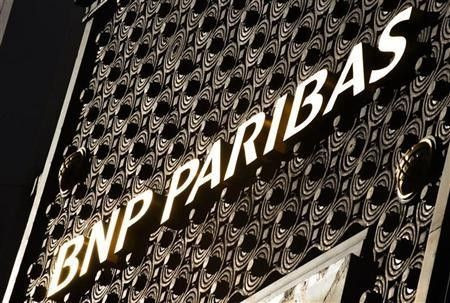International banks suspend Ivorian operations

Two large international banks suspended operations in Ivory Coast on Monday as a power struggle following a disputed presidential election tightened its grip on the economy of the world's top cocoa grower.
French bank BNP Paribas's Ivorian unit, the second biggest banking operation in the country, was closed due to security concerns, an official said.
Citibank also said it would be closed on Monday, giving no official reason but saying it would continue to monitor the situation.
BNP Paribas and number one Societe Generale between them have around two thirds of the Ivory Coast market.
Citibank is a smaller operation with no retail arm but is the largest corporate financer for Ivory Coast's oil and gas operations, the main creditor of its 80,000 barrel a day refinery and the third biggest cocoa exporter financer.
The West African nation has been in turmoil since a disputed November 28 presidential election between incumbent Laurent Gbagbo and rival Alassane Ouattara. Gbagbo's planning minister condemned the bank closures and said they were breaking the law.
United Nations-certified election commission results named Ouattara the winner, but the result was reversed by a pro-Gbagbo legal body and the incumbent remains in power despite international sanctions and threats of military force.
The entire BICICI network is closed until further notice, the official, who could not be named because of death threats against other banking staff, told Reuters.
The head office in Paris informed us of this decision yesterday at around 2300 (GMT). I'm staying home today.
A spokesperson for Citi in Paris said the bank was closed on Monday and the bank was monitoring the situation.
The power struggle has hit the banking sector as Ouattara, backed by western nations and regional bodies try and cut Gbagbo's access to funds to force him from power.
West Africa's monetary union last month cut off his access to state accounts at West Africa's BCEAO central bank.
It was becoming very difficult for those banks to operate in Ivory Coast because they can't use the BCEAO platform any more, Standard Bank analyst Samir Gadio told Reuters.
Gadio said that procedures that usually took an hour were now taking up to eight days, and he added that there was a reputational risk if they continue to operate in Ivory Coast ... (and are) seen as allowing Gbagbo's regime to survive.
ENDGAME?
Western nations have slapped travel bans and sanctions on a range of individuals and organisations backing Gbagbo.
Cocoa exporters have stopped registering new beans for export as a result of the sanctions, and a ban called for by Ouattara. Cocoa futures touched their highest levels in over a year on Monday as fears grew the ban, initially put in place on January 24 for one month, would be extended.
But Ouattara remains trapped in a lagoon-side Abidjan hotel, protected by U.N. peacekeepers while Gbagbo, who has the backing of the military, remains in control of government buildings.
The government condemns the illegal character of this decision ... By proceeding with their closure, BICICI and Citibank are ... seriously contravening their obligations under banking law, budget minister Kone Katinan said on state TV.
(We) will not tolerate these acts of defiance.
After being cut off from the regional bank, Gbagbo sent soldiers to seize its Abidjan unit and appropriate local reserves, forcing the bank to close its Ivory Coast operations completely and causing problems with liquidity and cheque clearing.
Banking sources say the military has since intimidated banks into participating in a new clearing system set up in the building Gbagbo seized. Some have received death threats.
Gbagbo is not going to leave just because the banking system has shut down ... he will leave the day his life is at stake, Gadio said. But this is going to speed up the endgame. I don't see how the salaries are going to get paid.
© Copyright Thomson Reuters 2024. All rights reserved.





















